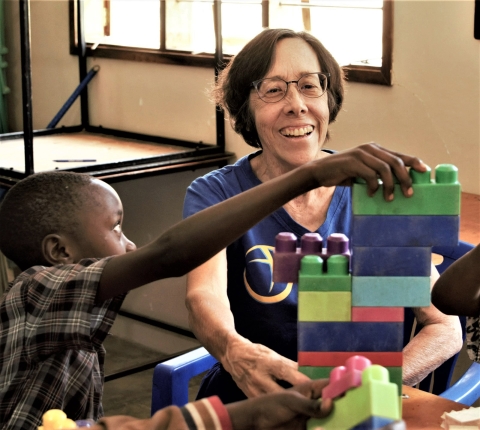
Today’s readings sum up what is required of anyone who calls themself Christian. The requirements are few and simple, yet we still seem to struggle to fulfill them. In the gospel of Matthew, Jesus clearly states that first and foremost we are to “love the Lord, your God, with all your heart, with all your soul, and with all your mind.” (Matt. 22:37) In other words, love of God is number one. Jesus could have stopped here; but to make sure that we understand that our faith is not just about offering praise and worship to God, he adds a second commandment: “You shall love your neighbor as yourself.” (Matt. 22:39) Although this commandment is ranked second, it is certainly harder.
It is easy to love a God who unconditionally loves us. But Jesus is asking us to also love our neighbors as ourselves. We do not get to pick who our neighbors are. They likely will not show us unconditional love in return. God is worthy of our love. When it comes to relationships with others, we tend to first consider if in fact they deserve our love. Certainly, God cannot expect us to love everyone? But that is exactly what God is requiring of us.
In Tanzania, where I serve as a lay missioner, there is a song commonly sung at funerals. The lyrics are “Lord if you kept track of our sins, who could stand before you?” If Gods’ love had to be earned, who would be worthy? Thankfully God is not fair. He loves us regardless of our failings.
Many of Maryknoll’s ministries around the world focus on showing love and compassion for those who are marginalized and rejected by society. Missioners work with children with disabilities, incarcerated members of society, and people living with HIV. These are all groups who have faced discrimination. They have not been considered worthy to receive love. Denied access to resources necessary to fully participate in the community, they become marginalized. In El Paso, Texas, our missioners work to ensure that immigrants seeking asylum in the United States are treated with dignity and respect. Sometimes, the best that any of us can do is just to show that someone cares. In Exodus we are told, “You shall not harass the newcomer, nor shall you afflict him…. You shall not harm a widow or orphan.” (Ex 22:20-21) At the very least, we are to do no harm. At our best, we are to love them as ourselves. Is it easy? Not always. But it is possible with God’s grace.
How different the world would be if we all took the second commandment of Jesus as seriously as the first?
Joanne Miya is a Maryknoll Lay Missioner serving in Tanzania. Photo of Joanne Miya with a child at the Uzima Center in Tanzania courtesy of the Maryknoll Lay Missioners website.
